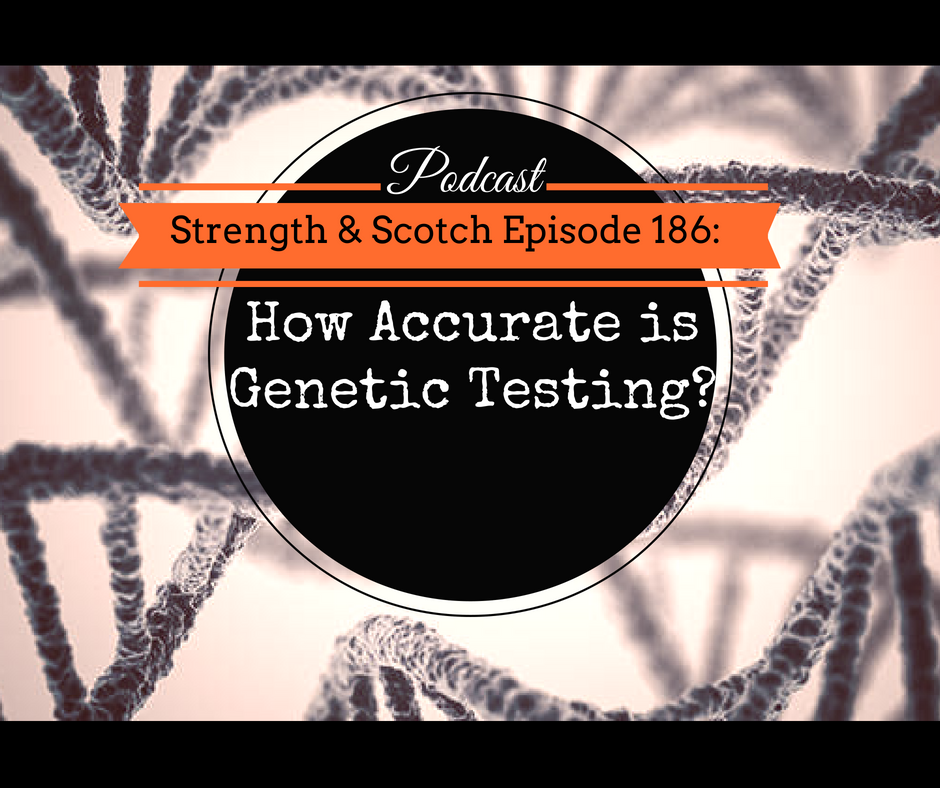SS 186 – How Accurate Is Genetic Testing?
Episode 186 Show Notes
Grant and Heavey dive into the world of genetic testing and its role in maintaining people’s health in terms of disease prevention, diet, and exercise.
Now becoming more and more popular among consumers, genetic testing does show a lot of potential. But how accurate is it? Would it suffice as diagnosis to certain diseases? What can you do with your data available?
[02:05] Forward: The Apple Store of Doctor’s Offices
Grant’s article for today is about Forward, a $149/ month medical startup that aims to be the Apple Store of doctor’s offices. What’s interesting about their concept is the combination of price structure and technology. You’re paying them monthly but get a full care suite which leverages technology for health.
They use advanced AI, machine learning, along with body scanners to do in-depth scanning and genetic testing.
In short, they provide preventative care where they take a look at all the technological advances they can do to minimize the need for ER, surgery, etc.
Heavey, for instance, just moved to Missouri and as a business owner, doesn’t have a job that pays his health insurance so he has to buy it off the marketplace. In fact, they got the lowest plan available at $1000/month (for both him and Nicole).
At Forward, the sensors are provided at the clinic including support and access to all of its AI and apps along with 24/7 medical staff access through the app. They’re also giving 15% off for its users and free membership for those in underserved and underprivileged communities.
They’re also doing prescription medicine. Buy medicine through them and they give a month free of prescription medicine. Although launched a year ago, Forward is still only in selected locations.
[08:45] Genetic Testing with 23andMe
There are a handful of companies that offer genetic testing to consumers. The idea is you can use this information to help determine the best way for you to eat and exercise.
Grant has actually done some genetic testing (specifically only the ancestry element). He learned that none of the things his mom told him about being Swedish and German was true. In fact, he is only 2.4% French and German.
Moreover, there’s an interesting tool on the 23andMe website where you can select your level of confidence in the result. The default setting is 50% confident. But if you want to be 90% sure the information is accurate, the rate that they feel really comfortable assigning shrinks from 94.2% of your DNA down to only 79% that they’re 90% certain.
[12:50] Can Genetic Testing Just Save Your Life?
Heavey also points out that there’s a lot of potential now for genetic testing. There are certain medications now that doctors are running genetic screening on individuals before prescribing because they can get a much better handle on how that individual will respond to those medications.
People use this to learn if they have higher risk for certain diseases like cancer, enabling them to screen more frequently. They get a better handle on the the disease if able to detect it early. Heavey adds that the potential behind these things is crazy awesome and that’s why people are so excited about them.
[13:33] Your Lifestyle, Not Your Genes
However, Heavey wants to underline the fact that just because your genes say you’re at risk for something doesn’t mean you’re going to get that disease. This idea of epigenetics is that your genes are not a sentence to you. Your lifestyle largely dictates the expression of those genes. Based on Heavey’s readings, he doesn’t recommend you rely on the percentages given to you.
One of the most well known cases of this is when Angelina Jolie had her breasts removed after learning she had a high risk of developing breast cancer through a genetic finding.
[15:23] They’re Not Meant to Be Diagnostic
However, genetic testing offered by these companies to consumers is not meant to be diagnostic of any sort of medical risk factors. In the U.S., the FDA doesn’t allow companies to offer diagnostic testing to consumers, except that they have authorized 23andMe to market a genetic health risk test for 10 specific conditions including diseases like Parkinson’s, Alzheimer’s, Celiac, etc.
The test is based on the presence of a very limited set of genetic variance so none of this is meant to be causal because of the whole epigenetics thing. Instead, it’s meant to indicate that you may have an increased risk for these conditions.
Grant raises a valid question whether insurance can pay for these tests, but Heavey highly doubts this since they’re not meant for medical use. Except again for this one (mentioned above) from 23andMe.
[17:00] Why These Tests Are Limited
In Parkinson’s disease for example, the 23andMe test only reports on a single variant in two genes linked to the disease. There are digital pathogenic variants in those genes they’re looking at as well as those other genes associated with the disease that they’re not reporting on. What you’re getting from these tests is pretty limited in scope and is in no way a comprehensive assessment of those ten conditions that they’re reporting on. In the same manner that if it doesn’t tell you you’re at risk, that doesn’t mean you’re not at risk either.
[18:00] Seeking Third Party Company for Analysis
Even though the consumer tests don’t allow you to do this detailed risk factor analysis, people are still able to go around that by requesting raw data. You can then take that and supply it to a third party company that will give you all the analysis and risk factors for a host of other conditions.
When you get data from the consumer companies, it usually comes with a disclaimer that it’s not validated for accuracy or meant for medical use. You can import data to the third party service and get detailed interpretation. Unfortunately, the interpretation usually comes as a result of quarrying public databases, which comes with numerous incorrect classifications.
[20:05] How Accurate Are the Databases?
The databases are largely meant to be supplied by scientific research. There’s a lot of good data there but they may also be filled with outdated information and inaccuracies.
Heavey cites one study that took a look at 50 individuals where there was consumer testing done. They were alarmed by the results and went to see a doctor afterwards who followed this up with medical grade genetic testing (the gold standard of testing).
Out of these 50 people that had their genes retested for conditions they had been found to be at risk for, 60% of the genetic variants were confirmed. The bad news is that 40% were classified as false positives.
Based on the limited set of data, there’s 40% chance that you will get a report back that says you’re at risk for something that you in fact are not.
Genetic testing is relatively new in the scope of medical testing. Layering that on top of the consumer-grade version of it, it’s not nearly as accurate as medical grade testing. Too often, people try to use that information to justify medical treatment and that’s where the problem lies.
Nevertheless, Heavey believe genetic testing has great potential. Hopefully, this could be realized in 10-15 years. But for now, people need to be aware that this testing is riddled with errors.
[25:00] Bad News, Bad News
Another issue here is that most doctors and medical professionals aren’t aware of these inaccuracies either. More and more patients are bringing them genetic data and asking them what to do about it. Since a lot of healthcare professionals are not informed of the tests being riddled with errors, they may have people do unnecessary procedures, or worse, causes people to have more anxiety.
Again, Heavey stresses that the results are not the end all be all for many reasons. But you should know it’s more of a fun thing to run your genetic testing right now. If you do get results that are worrisome in any way, Heavey recommends you see your doctor and make sure they understand the errors in this test.
Heavey points out how these companies are only looking at a limited subset so it can be informative but it doesn’t mean it’s of comprehensive use. So you could get a positive, but if you get a negative, you don’t really know if that’s accurate.
[29:15] The Role of Genetic Testing in Diet and Exercise
Genetic testing can be done to find out where people have potential to be much more successful out of a certain exercise. From a nutritional perspective Heavey thinks we can learn a lot about the way people’s bodies process certain nutrients and make better dietary choices.
It’s not anything ideal but we could use it to make and improve decisions for people to do that over time. For now, we have to focus on collecting accurate data. The reality is that multiple genes are at play for any given thing. If you start extrapolating that and do a new study on how people handle carbohydrates in their diet and look at variations of 20 genes, the study then becomes impossible to do on any real scale. So it’s a really difficult problem. That being said, we’re still in the early stages of this industry and it will be interesting to see how it develops.
Links:

Check out the gear page for everything Strength & Scotch! You’ll find a listing of all the supplements and other programs we’ve discussed on the show as well as our killer t-shirts!

